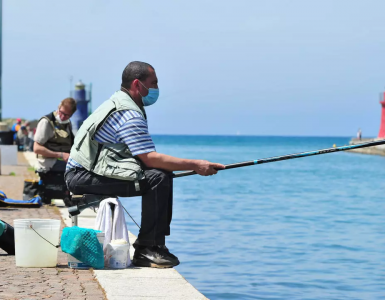20 years ago the US was still home to 34,000 travel retail locations, now the number is 13,000 according to CNN. Today, 60% of leisure and 41% of business travelers are making travel arrangements via the internet, and the travel industry has completely transformed itself into a digital-first sector.
On balance the travel industry has coped well with these changes. There have been big winners and big losers, but overall the industry is bigger than ever. Globally, it is expected to grow at an annual rate of 3.8% over the next 10 years to $11.4 trillion – that’s over four times the total size of the UK economy!
There are global mega-trends driving this growth which are not going to go away anytime soon. This is great news for the travel industry and companies within the industry need to understand these trends to be able to capitalise on them.
The Rise of the experience economy
Consumer spending habits are changing rapidly. Just as spending on audio content is falling whilst spending on attending concerts rises, consumers are cutting back spending on many material goods in favour of spending on ‘experiences’.
This trend is particularly strong among the Millennial Generation of people between the ages of 18 and 34. The travel industry is uniquely well positioned to benefit from this.
In a study by travel advice website Tripadvisor, 32% of respondents indicated plans to spend more on travels in 2019 than the year before. Whilst a survey by American express found that 85% agreed with the statement that “spending money on travel is an investment worth making.”
Customers existing within a social ecosystem
It is no secret that social media influences our spending habits.
But there are few industries where it is more influential than travel. It is even fueling the trend towards valuing experiences. 52% of travellers said that social media influenced a change in their travel plans, while 80% are more likely to book a trip from a company “liked” by a friend than a conventional Facebook ad.
This is largely due to the fact that 76% of social media users post status updates and vacation photos, fueling a ‘keeping up with the Joneses’ like desire to travel to equally exotic locations as one’s friends.
Recommendations are king
A growing distrust of corporate websites and the move to social media means recommendations from our peers are increasingly important when considering booking a holiday.
Over 95% of leisure travelers in a Tnooz study read about 7 reviews before booking, spending an average of 30 minutes. A recent TripAdvisor survey revealed 92% of UK travelers agree with the statement “reviews are essential when booking a holiday”.
This means bad reviews should be dealt with very delicately and customer complaints should be addressed with the utmost thought. Going the extra mile for customers could really pay for itself if it means you get a good review that could end up driving more leads than an expensive advertising campaign.
Personalisation with big data
As was said above people are increasingly concerned with experiences. But people don’t want the same experience as everyone else. They want unique and personalised experiences. Big data is key to achieving this.
Big data allows brands to offer customised offerings and to track preferences. 83% of millennials allow travel brands to track their habits in exchange for a better, more individual experience. Furthermore, 85% of respondents across all age groups said that customized itineraries are far more appealing than one-size-fits-all solutions.
By combining big data with AI we are presented with the near-term prospect of useful ‘virtual travel assistants’ These could offer advice, such as suggesting nearby restaurants according to our personal tastes and budget.
Virtual reality
Virtual reality is one of those technologies that has seemed like being the next big thing for an awfully long time but has never really made it into the mainstream. This is about to change as the tech is finally mature enough to offer an incredible virtual reality experience without breaking the bank.
VR allows for the possibility of giving holidaymakers the chance to ‘try before you buy’ in a way that has previously been impossible. You try on clothes to see how they look before taking your credit card out, but you have to take a travel companies word for it that their beach resort really does offer ‘pristine white beaches’.
In the future, you’ll be able to look around the resort, see your room and check out just how big the pool is.
This technology may seem a few years off, but in some cases it is already in place. Trying holiday experiences such as helicopter rides via virtual reality are already available at 10 Thomas Cook stores in the U.K and Europe. VR-promoted New York trip revenues are already up 190% – proof that VR unlocks real payoffs.















